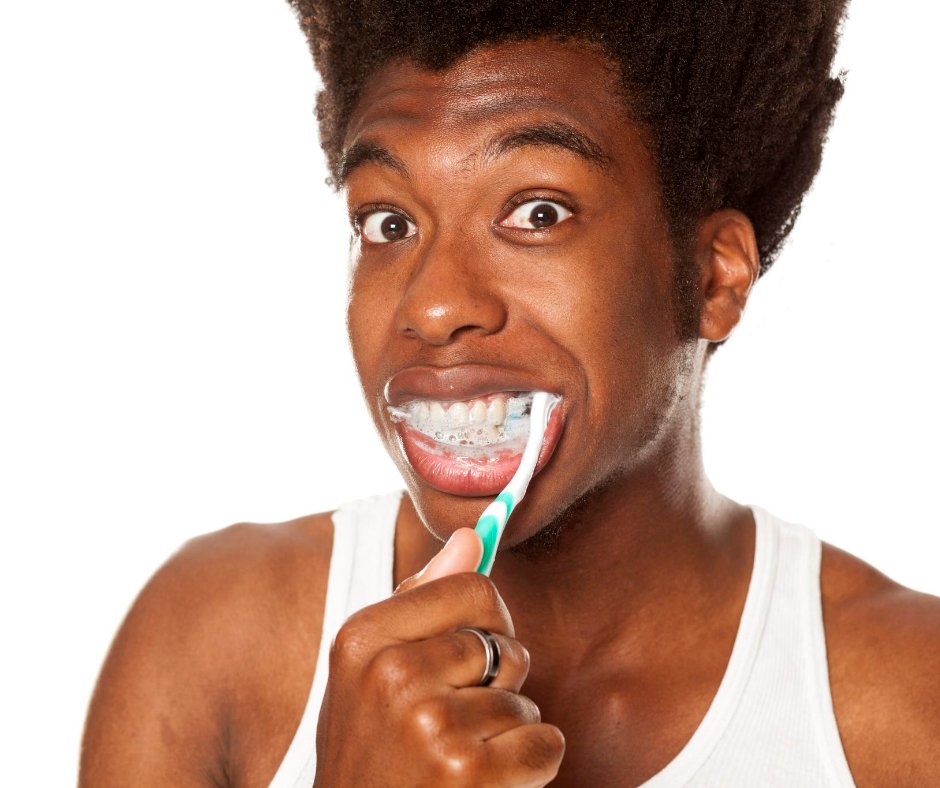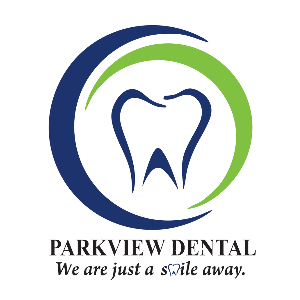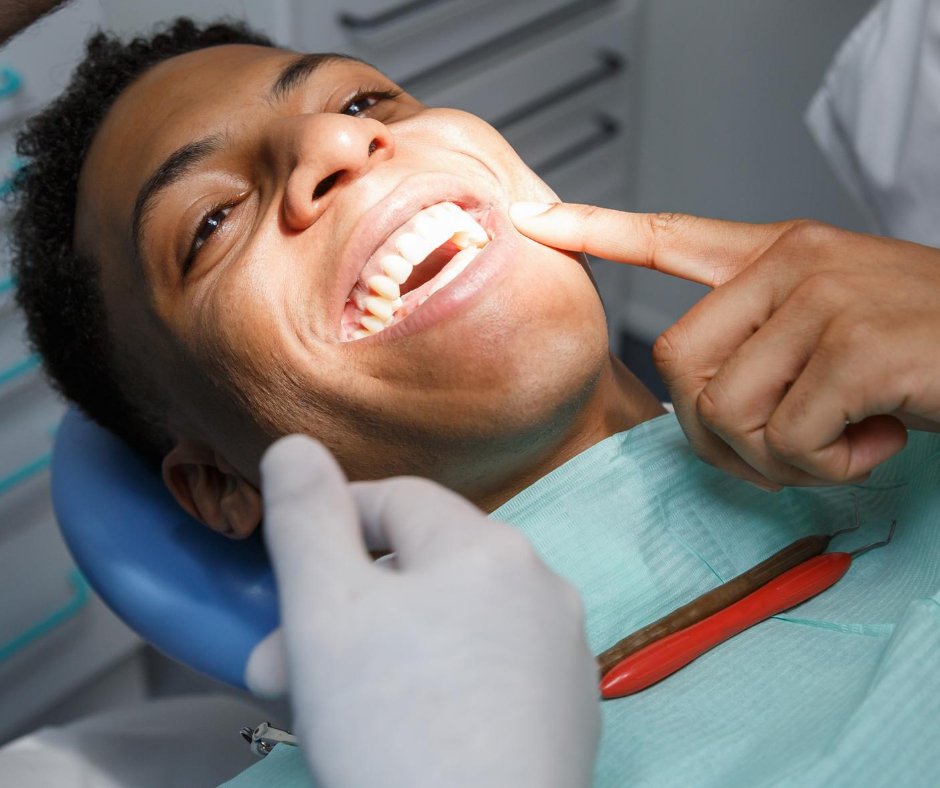What is preventive dentistry?
Preventive dentistry is the modern way of helping you keep a healthy mouth. It helps you to keep your teeth free from most oral health complications.
The two main causes of tooth loss are decay and gum disease. The better you prevent or deal with these two problems at the right time, the more chance you will have of keeping your teeth for life. When the dental team and patient work together, this can help to prevent the need for costly treatment in the long run. Your dental team may recommend a course of treatment to get your mouth into good condition, and then work out a ‘maintenance plan’ to help you keep it that way.
Can everybody benefit from preventive dentistry?
Yes. Preventive dentistry will benefit anyone with some of their natural teeth. People who don’t have any teeth can also benefit because conditions such as mouth cancer and denture stomatitis can be spotted during regular visits to the dental team and then treated. It is excellent for children and young people, but it is never too late to start.
What is involved?
Your dental team at Parkview Dental Centre will first check your teeth and gums, and talk to you about any treatment you need. The main aim is to help you get your mouth really healthy. In a healthy mouth, it is unlikely that decay or gum disease will continue to be a problem.
The dental team will thoroughly remove all plaque and tartar from your teeth. This is often called ‘scaling and polishing’.
The dental team will show you the best ways to brush, and how to clean in between your teeth using interdental brushes or floss, to remove the bacterial ‘plaque’ which forms constantly on your teeth. When you eat or drink something sugary, the bacteria in the plaque turn the sugar into acid, which may cause tooth decay. Plaque can also cause gum inflammation (swelling and soreness) if it is not regularly and thoroughly removed. The hard tartar (or ‘calculus’) which builds up on the teeth also starts off as plaque.
You will be told which oral care products are the best ones for you to use.
The dental team will a little bit talk to you about your diet, and any habits you have such as smoking and drinking.
Your dentist will also make sure that all your fillings are in good condition and that there are no rough edges to make cleaning difficult.
Will my dental team recommend treatment?
A ‘preventive dentist’ will often recommend treatment to strengthen a tooth to make sure it does not break. For example, if the dental team sees that a tooth is cracked, or is weak and in danger of breaking, they may advise a new filling or perhaps a crown or ‘onlay’ to protect it. This is always better than waiting until the tooth breaks, and then dealing with it as an emergency.
What else can the dentist and hygienist do to help prevent tooth decay?
Fluoride helps teeth resist decay. Your dental team will recommend the right level of fluoride for you to use in your toothpaste. Fluoride varnishes may be recommended for children to help prevent decay. If you are particularly at risk of decay your dental team may recommend or prescribe a high-strength fluoride toothpaste. Children up to three years old should use toothpaste with a fluoride level of at least 1000ppm (parts per million). Three-year-olds to adults should use toothpaste that contains 1350ppm to 1500ppm of fluoride.
What are pit and fissure sealants?
The biting surfaces of teeth can be protected by applying ‘sealants’. These make the tooth surface smoother and easier to clean and prevent decay from starting in the difficult-to-clean areas. Your dental team will suggest whether this would be right for you.
Can diet affect my teeth?
Food and drinks containing sugar cause decay. If you cut down on how often you have sugary snacks and drinks this will help a lot. Foods such as cheese, fruit, nuts, and vegetables are better for your teeth.
A diet that is rich in fruits, vegetables, and minerals can help prevent gum disease and protect against mouth cancer.
What is dental erosion?
Dental erosion is the loss of enamel caused by an acid attack. When the enamel is worn away it can lead to pain and sensitivity. Foods and drinks that contain acid, such as citrus fruits, fizzy drinks, smoothies, fruit juice, and fruit teas, can all cause dental erosion if you have them often.
Can I prevent dental erosion?
Acidic foods and drinks can be harmful if you have them often in large amounts. Try to have acidic food and drinks only at mealtimes and drink acidic drinks through a straw.
We recommend that you do not brush your teeth for at least one hour after eating or drinking anything. Every time you eat or drink, the enamel on your teeth becomes softer for a short while and loses some of its mineral content. Waiting for an hour or so will allow your saliva to slowly restore it to its natural balance.
Can smoking and drinking affect my teeth and gums?
Yes. Smoking can cause tooth staining, tooth loss, and mouth cancer, and make gum disease worse. If you smoke, you may need to visit the dental team more often, but the best advice is to try to give up. Alcoholic drinks can also cause mouth cancer and if you smoke and drink you’re more at risk. Some alcoholic drinks contain a lot of sugar, and some mixed drinks may contain acids. So they can cause decay or erosion if you drink them often and in large amounts.
What can I do at home?

It is very important that you keep up a good routine at home to keep your teeth and gums healthy. We recommend that you:
- Brush your teeth last thing at night and at least one other time during the day, with fluoride toothpaste – brush in the way your dental team has shown you.
- Spit out after brushing and do not rinse, so that the fluoride stays on your teeth longer.
- Clean in between your teeth with ‘interdental’ brushes or floss – brushing alone only cleans up to about 60 percent of the surface of your teeth.
- Use a mouthwash. Many types of mouthwash contain antibacterial ingredients to help prevent gum disease, and fluoride to help prevent decay. Don’t use the mouthwash straight after brushing. Using the mouthwash in between the times you brush your teeth means that your teeth and gums are protected for longer.
Is there anything else I can do?
Yes. You can take other steps to help prevent tooth loss, decay, and the need for treatment.
- Cut down on how often you have sugary foods and drinks.
- Use a straw when you have fizzy or acidic drinks – this helps the drink to go to the back of your mouth and reduces the acid attack on the teeth.
- Chew sugar-free gum – it makes your mouth produce more saliva and stops your mouth from drying out. It can also help to reduce plaque and prevent dental decay and erosion.
- Visit your dental team regularly, as often as they recommend.
What oral care products should I use?
There are now many specialized kinds of toothpaste, including total care toothpaste and kinds of toothpaste made specially to help with plaque and gum disease, and sensitive teeth. There are also types of ‘whitening’ toothpaste.
Mouthwashes can help in preventive care, and there are different types including ones with anti-bacterial ingredients.
Adults should use a toothbrush with a small- to medium-sized head and soft to medium filaments (bristles).
If you are unsure of anything or wish to get personalized support from our certified dentists, visit Parkview Dental Center so you can receive quality care and treatment for dental services including; teeth braces, teeth replacements, teeth filling, root canal treatments, and teeth whitening in Nairobi. We shall advise on the one that best suits your needs. Preventive care is important
Originally Published on dentalhealth.org


Leave a Reply